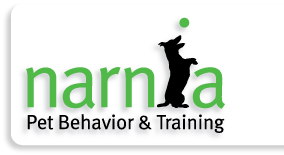

|
|
||
|
If you don't set rules, your dog will set his own! Training is important for puppies AND adult dogs. A good trainer should attend seminars and workshops to continue his or her education. There is no agency that licenses or regulates dog trainers, so be sure to find out where the trainer was educated. Look for a class that uses positive, humane techniques. This approach enhances the bond between the pet and person by building communication. Trainers should encourage appropriate behavior with a reward - these include food, play, praise and attention. Avoid training that uses yelling, scruffing, choking, tugging on the leash or alpha rolling (where the dog is forced to roll onto its back). Avoid methods based on fear or pain. Always ask to observe a class first. Above all, trust your instincts! If training methods don't seem right to you, look for another trainer. Your dog trusts you to keep him safe!   |

The Humane Society of the United States and Association of Pet Dog Trainers both have some great information on finding a trainer. View the HSUS suggestions here and APDT's here. |
|











